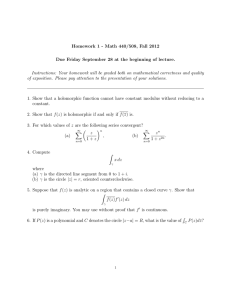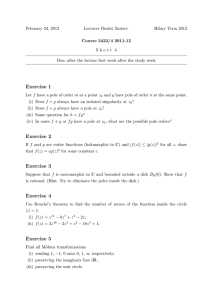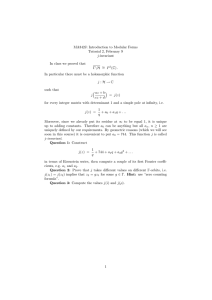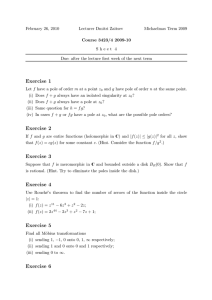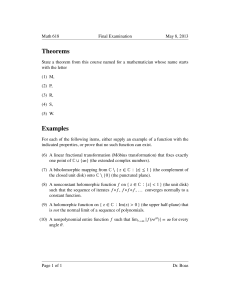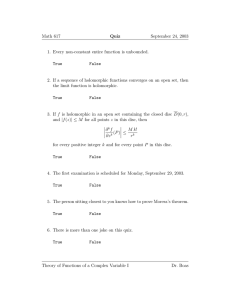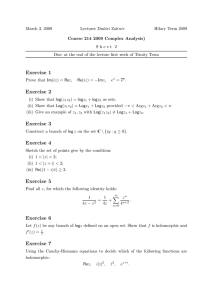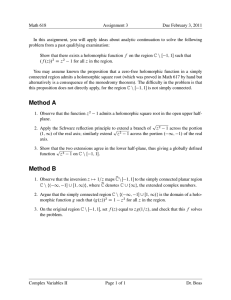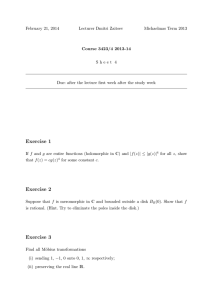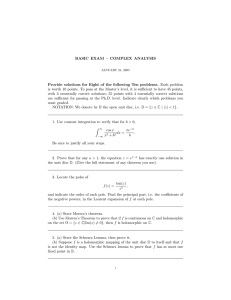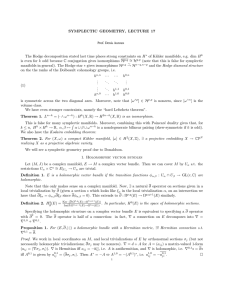Pries: 619 Complex Variables II. Homework 6.
advertisement
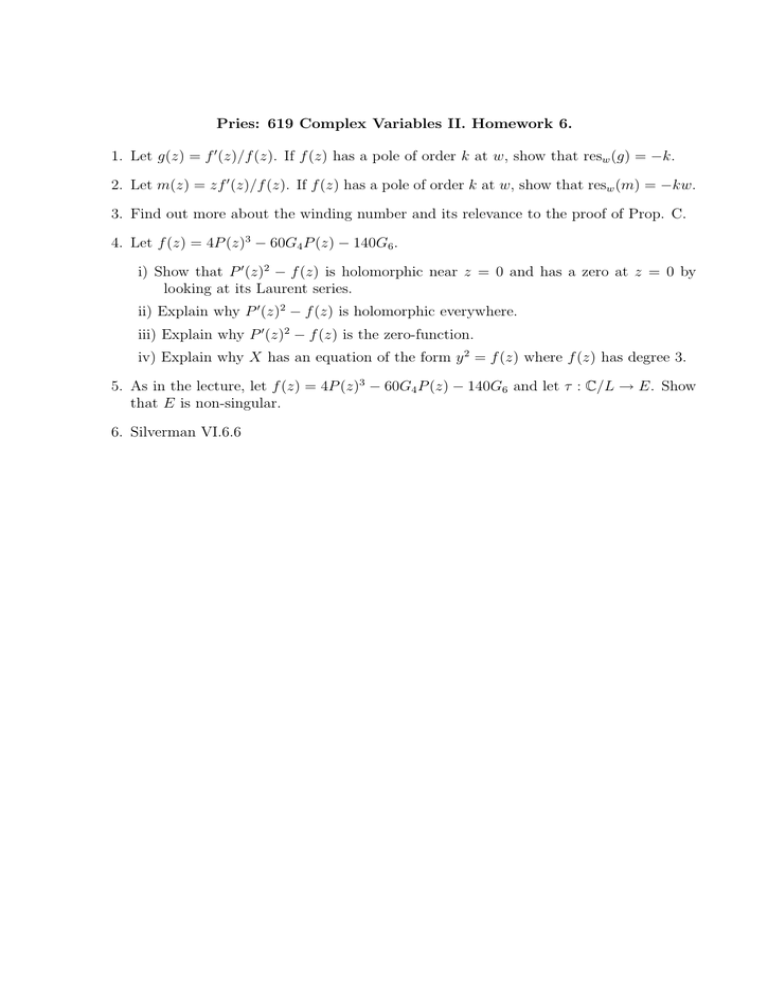
Pries: 619 Complex Variables II. Homework 6. 1. Let g(z) = f 0 (z)/f (z). If f (z) has a pole of order k at w, show that resw (g) = −k. 2. Let m(z) = zf 0 (z)/f (z). If f (z) has a pole of order k at w, show that resw (m) = −kw. 3. Find out more about the winding number and its relevance to the proof of Prop. C. 4. Let f (z) = 4P (z)3 − 60G4 P (z) − 140G6 . i) Show that P 0 (z)2 − f (z) is holomorphic near z = 0 and has a zero at z = 0 by looking at its Laurent series. ii) Explain why P 0 (z)2 − f (z) is holomorphic everywhere. iii) Explain why P 0 (z)2 − f (z) is the zero-function. iv) Explain why X has an equation of the form y 2 = f (z) where f (z) has degree 3. 5. As in the lecture, let f (z) = 4P (z)3 − 60G4 P (z) − 140G6 and let τ : C/L → E. Show that E is non-singular. 6. Silverman VI.6.6
